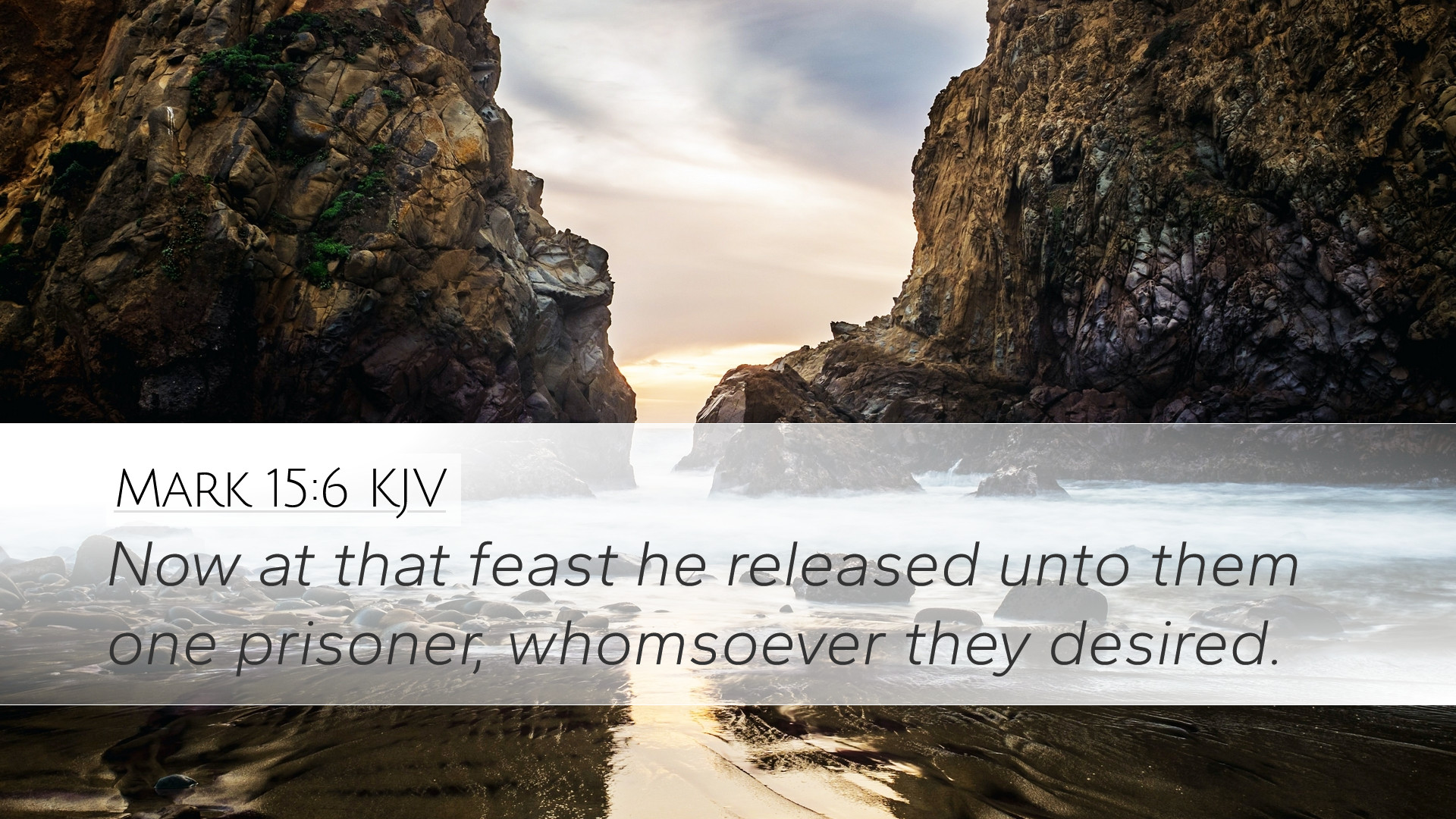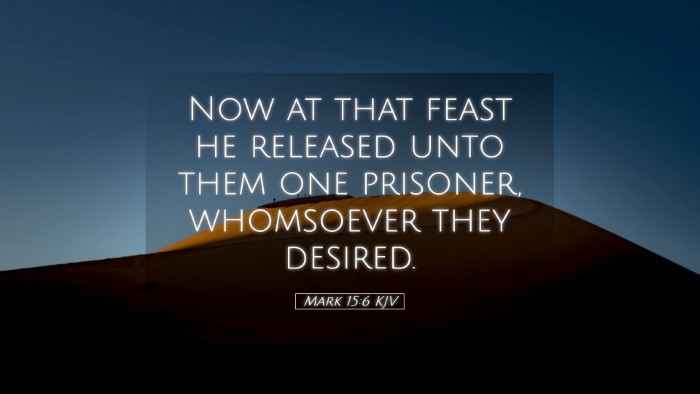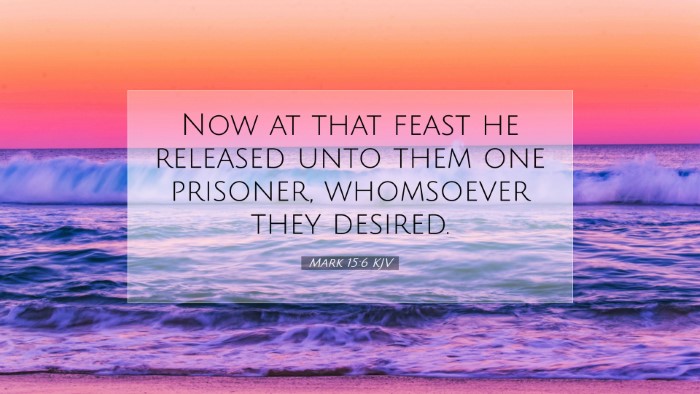Commentary on Mark 15:6
Mark 15:6 states: “Now at that feast he released unto them one prisoner, whomsoever they desired.”
Introduction
This verse is embedded within the narrative of Jesus' trial and crucifixion. It captures a significant moment of choice presented to the crowd during the Passover feast, wherein they were offered the opportunity to free one prisoner. This event is not merely a historical account but an opportunity for theological reflection regarding choice, freedom, and the nature of Barabbas and Jesus.
The Context of the Passage
Understanding the context is crucial. The Passover feast was a time when the Jews commemorated their deliverance from Egypt, symbolizing God's liberation. This contrasts sharply with the choice they make in this narrative, highlighting the irony and the gravity of their decision.
As Matthew Henry points out, “It was a custom at the feast of the Passover for the governor to release one prisoner to the people, to show mercy and to appease the populace.” This act is one of political maneuvering by Pilate, intended to curry favor with the Jewish leaders.
Character of the Prisoners
Mark’s account implicitly contrasts two figures: Jesus and Barabbas. While Jesus embodies truth and righteousness, Barabbas is marked by insurrection and violence.
- Barabbas: Described as a "notorious prisoner," he represents rebellion and chaos. Albert Barnes notes, “Barabbas was a zealot who sought to liberate Israel, not spiritually, but through violent uprising.”
- Jesus: The innocent sufferer, who came to fulfill the law and bring peace, stands accused yet entirely blameless.
The Choice Presented
The choice offered by Pilate raises profound questions about human nature and societal norms. The crowd's choice to release Barabbas instead of Jesus illuminates the depravity and fickleness of the human heart.
Adam Clarke reflects on the significance of this decision, stating, “This was not merely a choice of prisoners; it symbolized the choice between good and evil, freedom and bondage.” This pivotal moment not only serves to fulfill prophecy but also invites readers into a deeper understanding of the human condition.
Theological Implications
There are several theological implications found in this verse:
- Substitution: The act of freeing Barabbas in lieu of Jesus can be viewed as a foreshadowing of the sacrificial system, where innocent blood is shed for the guilty.
- Judgment: Pilate's gesture exhibits a failure to uphold justice, illustrating how often society chooses convenience over righteousness.
- The Nature of True Freedom: While Barabbas is released, the greater truth lies in Jesus, who offers liberation from sin. This paradox invites believers to consider what true freedom entails.
Application for Today
The themes in Mark 15:6 hold relevance for contemporary society. It challenges individuals, congregations, and communities to reflect on their choices and the implications these choices bear.
Pastors and theologians may draw from this passage the importance of guiding their flocks toward discernment in critical societal questions. As Matthew Henry observed, “A choice for the world often leads to the rejection of Christ – a sober reminder for us today.”
Conclusion
Mark 15:6 serves as a poignant reminder of the power inherent in choice and the eternal implications of our decisions. As believers reflect on this passage, may they be encouraged to choose Christ continually, understanding the deep significance of His sacrifice in light of the choices before them.


